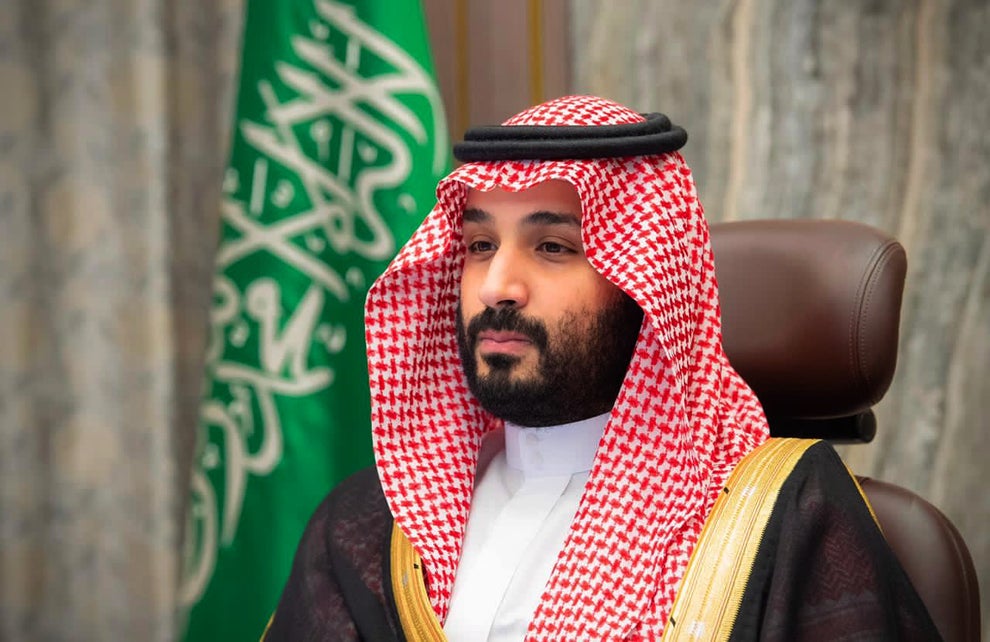
Saudi dissidents have said they fear for their lives following reports alleging that Riyadh had used its European embassies to target critics abroad in the months before journalist Jamal Khashoggi was murdered at its consulate in Istanbul.
In the summer of 2018, Saudi officials harangued a critic at their London embassy and dispatched a massive security team to Norway, possibly to target a dissident exile activist, according to reports.
The reports, published this week in the mainstream Norwegian newspaper Dagbladet, raise serious questions about the extent to which the Saudi regime uses its embassies and consulates abroad as staging grounds for intelligence operations targeting dissidents and perceived enemies of the kingdom’s de facto ruler, Crown Prince Mohammed bin Salman.
Iyad el-Baghdadi, the Oslo-based activist and critic of Saudi Arabia who was one of the alleged targets of the regime, said he now feared for his safety and claimed that his phone was hacked between May and June 2019.
“The biggest takeaway is that the Saudis are absolutely not respecting international norms when it comes to what embassies are supposed to be and how they’re supposed to function,” Mr Baghdadi told The Independent.
Saudi Arabia has yet to respond to the reports and did not immediately reply to The Independent’s request for comment. In the past it has denied allegations that it uses its diplomatic missions to silence critics, describing such accusations as baseless.
According to Dagbladet, Saudi authorities may have attempted to target Mr Baghdadi and Alya al-Huweiti, a London resident and former horse-racing jockey who has been critical both of the Saudi war in Yemen and a project to create a half-trillion-dollar city on the Red Sea that would displace members of her tribe.
Ms Huweiti faced off against Saudi officials one afternoon in July 2018 at the Saudi embassy in London, where she had been working as a junior employee since 2014.
Read: Saudis detain hundreds of African migrants in squalid conditions
“Since Mohammed bin Salman took over in 2015 I had a problem at work,” she told The Independent in an interview. “I’ve been called in for meetings with the ambassador four times.”
She told Dagbladet that her last meeting involved six officials including the ambassador to the UK, Mohammed bin Nawwaf bin Abdulaziz. In her account, the ambassador spent hours grilling her about her comments on social media and insisted she delete critical posts on Twitter, finally letting her go home when she promised to do so. She never did.
The ambassador tried to persuade her to change her opinions on the Yemen war and stop criticising the regime. Another official took notes as she spoke.
“It was absolutely terrifying,” she said. “As I know from the embassy’s reputation, sometimes you get in and never out, and you will be missing for years.”
The same summer, Saudi Arabia allegedly tried to get 10 security officials accredited as diplomats to its embassy in Oslo, a request that was considered strange because the diplomatic mission only employs 18 people. Alarmed Norwegian foreign ministry officials denied the request for all but one of the 10.
Months later, officials tipped off Mr Baghdadi to the attempt, suspecting that the Saudi regime was seeking to use its diplomatic outpost to silence him, according to the report.
The former resident of the United Arab Emirates had run afoul of the country’s absolute monarchy and wound up in prison there before being allowed to go into exile in Norway, where he has become an outspoken critic of authoritarian Arab rulers, including Prince Mohammed. Mr Baghdadi is now a stateless refugee of Palestinian descent.
Registering the Saudi security officials as diplomats would give them diplomatic immunity, shielding them from Norwegian prosecution for any crimes.
“Saudi Arabia wanted the security guards to be registered as diplomats in Norway,” reported Dagbladet, citing unnamed sources. “This would give them extended room for manoeuvring in Norway.”
Mr Baghdadi was a friend of Khashoggi, a Saudi national who was murdered inside his own nation’s consulate by a team of high-ranking security officials from the court of Prince Mohammed, heir to the Saudi throne. The Saudi regime insists the killing was a rogue operation.
Last year Mr Baghdadi and his family were whisked away by Norwegian officials alarmed over intelligence provided by the CIA that his wife was in danger at the hands of Saudi operatives.
In an interview, Mr Baghdadi noted that Saudi officials attempted in 2018 to obtain visas for several officials in Canada – which hosts prominent dissident Omar Abdelaziz, another friend of Khashoggi – and allegedly hacked the phones of a number of people, including a correspondent for The New York Times, Ben Hubbard, who was then writing a book about Prince Mohammed.
Source: The Independent